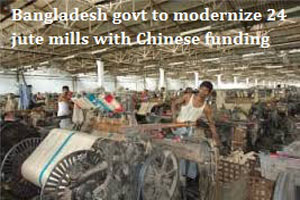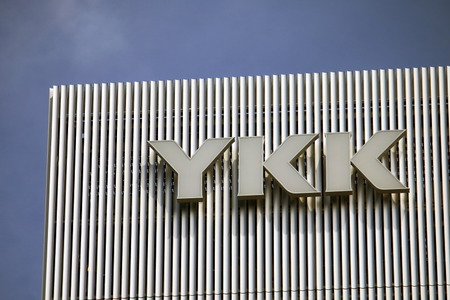
Bangladesh govt to modernize 24 jute mills with Chinese funding
YarnsandFibers News Bureau 2016-12-19 12:00:00 – DhakaThe Bangladesh government has decided to take up a project worth $350 million or Tk 2,800 crore for balancing, modernizing, rehabilitating and expanding the jute mills, with Chinese funding. As the state-owned jute mills have been loss-making units for several years now, and in the last fiscal year their losses amounted to Tk 588 crore.
The jute mills production capacity is 275,500 tonnes but the actual annual production is 108,656 tonnes, yielding Tk 1,041 crore or $130 million in revenue. About 82,000 are employed in the mills and the government has to give subsidy every year to keep the mills running.
The government will modernize 24 public sector jute mills where China will put in about $280 million or Tk2,240 crore . This move is expected to generate annual net profits of $119 million and 24,000 new jobs.
China Textile Engineering Corporation has already conducted a feasibility study on the jute mills, said an official of the textile and jute ministry.
Due to a lag in technology, low efficiency, obsolete equipment, single product focus, lack of competitiveness and confused management, Bangladesh is losing its leading position in the global jute industry. The study also found that the amount of land that the jute mills currently occupy can also be brought down. At present, the 24 jute mills sit on 2,228 acres, according to the Chinese company's feasibility study.
The project will take off with three jute mills -- Karim Jute Mills (Dhaka), Amin Jute Mills (Chittagong) and Platinum Jubilee Jute Mills (Khulna), the official said.
Once the project is complete, the mills' total revenues would more than treble to Tk 3,743 crore.
Besides the traditional jute goods, the mills would also be able to manufacture various non-traditional items like high value car dashboard, window and curtains, linen cloth, car seat cover and so on. The Chinese company will also buy back some of the products after the completion of the project.
Market Intelligence
Ask for free sample Report

experience
Customer Base
dedicated team
Countries Served Worldwide









